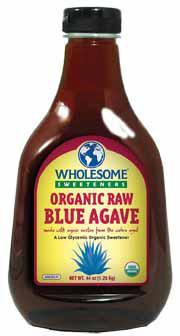 If You Have This Ingredient In Your Kitchen, Throw It Away!
If You Have This Ingredient In Your Kitchen, Throw It Away!
For over a decade, agave nectar has been marketed as a healthy alternative to refined white sugar and high fructose corn syrup because agave nectar has a lower glycemic index (GI varies from 15 – 30 depending on variety) than other natural sweeteners, including raw honey (GI 30), coconut sugar (GI 35), maple syrup (GI 54), corn sugar (GI 75), and pasteurized honey (GI 75). Though the scientific research has always been very clear that agave nectar contains a higher percentage of fructose than even high fructose corn syrup, the number of agave-sweetened products cropping up in natural food stores has been exponential. Now it’s in everything from organic ice cream and organic chocolate bars to organic yogurt, organic ketchup, organic beverages, organic raw kale chips, and raw organic juices.
Personally, I’m quite disgusted to see new organic products all being sweetened with agave nectar. Apparently, if the label says “raw” or “organic” on it, most people still assume it’s healthy. I’m not meaning to sound arrogant here, but I never jumped onto the agave bandwagon, even back in the day before even the raw food gurus were telling people that agave is poisonous (because now they’re trying to sell you coconut sugar as the healthy alternative to agave). The first time I ever tasted a product containing agave (an organic raw piece of chocolate from my local food co-op back in 2003), I felt horrible as if I had just eaten a sugar and HFCS candy bar. So that was the end of agave nectar for me. Everyone knew back then that it was high in fructose, but there was this general idea that fructose was a “good” sugar because fructose is found in fruit (though in very small amounts, compared to agave and HFCS).
What’s wrong with fructose? It’s metabolized by the liver in the same way that ethanol (alcohol) is metabolized. Therefore, even moderate consumption of fructose from agave, high fructose corn syrup, fruit juice, and/or 2 or more servings per day of some fruits that are high in fructose (medjool dates, bananas, mangoes, apples, dried fruits, seedless grapes, watermelon, etc.) will actually cause non-alcoholic fatty liver disease (cirrhosis of the liver). You could be adding agave nectar to otherwise healthy foods like kale chips, Greek yogurt, and fresh-pressed green juices and unknowingly damaging your liver to look like the liver of an alcoholic (AKA an enlarged liver full of fat, fibrotic tissue, and elevated liver enzymes)! This sounds crazy, but we are actually now seeing an increase in the number of children with cirrhosis of the liver because their parents have been feeding them fructose-sweetened beverages.
I know this is shocking news, especially for people who eat a couple of bananas, a mango, an apple, and a handful of dates on a daily basis as a fruit smoothie or in a juice. For a more detailed explanation about what is going on metabolically when you consume fructose, click on the links below to watch some shocking video footage from Dr. Robert Lustig, Professor in the Division of Pediatrics and Endocrinology at UCSF
Now what I would recommend is to limit your fruit consumption to no more than 2 servings of fruit daily (and possibly one or fewer servings if you have reactive hypoglycemia, PCOS, high cholesterol or high triglycerides, diabetes, obesity, or excess belly fat), and consume the whole fruit instead of just the juice. If you must use a caloric sweetener, use a teaspoon of raw Manuka honey for its antibacterial and immune-boosting qualities. For a zero calorie sweetener with a glycemic index of 0, use stevia. There have been some rumors circulating on the internet that stevia causes cancer just like all the chemical sweeteners like Nutrasweet and Sucralose. I have been studying research on the safety of stevia for years now, and I have never found any evidence suggesting that stevia is a danger to our health. It comes from an herb that has been used to sweeten beverages and foods for thousands of years. And in fact, there is a growing body of research suggesting that stevia actually inhibits (prevents) the formation of tumors and also has antiviral properties that kill the Epstein-Barr virus.
It’s my passion and career to separate the myths from the truths about health, nutrition, and fitness, and to help YOU make wise decisions concerning your health. If you want to purchase stevia for its excellent taste and exciting health benefits, please purchase it from me by clicking on the links below. You could easily just purchase it at Whole Foods or someplace else, but those retailers will also sell you agave nectar and canola oil and tell you these are healthy products even though they know that agave will give you cirrhosis and canola is a GMO. That kind of selling is out of alignment with who I choose to be as a person, and I would never do such a disservice to you as a customer. So please support businesses with integrity by making sure where you spend your money is in alignment with your values!
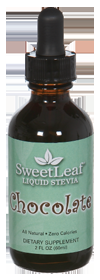
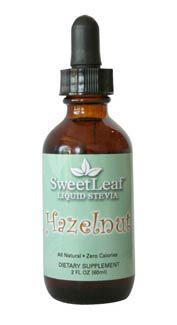

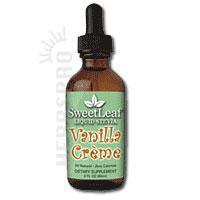

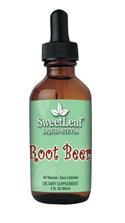
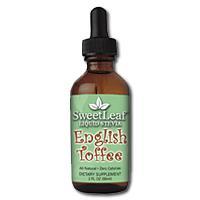
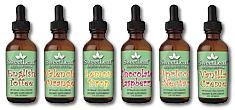
Click here to get your free bottle of stevia!

